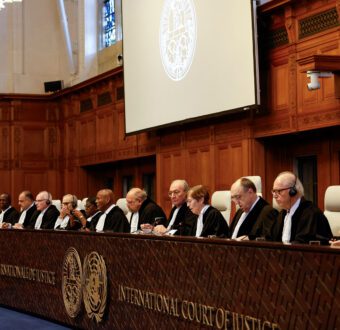Through the Eyes of Others

President Joe Biden seeks to return the United States to a leadership position but US allies are not so sure.
By Mark Hannah, Senior Fellow
This article appeared in Inkstick on February 5, 2021.
Although President Joe Biden seems to recognize the threats to Americans’ security and prosperity originate more at home than abroad, his speech at the State Department yesterday promised to reengage with the world — “not to meet yesterday’s challenges, but today’s and tomorrow’s.” Such vows may easily placate a Washington establishment weary from four years of President Donald Trump’s “America First” foreign policy, but they do little to reassure America’s allies and partners.
Recent polling by the European Council on Foreign Relations found that shockingly many in key European allies, such as the United Kingdom, don’t think they can rely on the United States to defend them and “look to Berlin rather than Washington as the most important partner.” A third of respondents across these 11 European countries believe American voters are likely to serve up another President Donald Trump, two-thirds want the EU to develop its own defense capabilities, and half of them have little faith in President Biden’s ability to juggle the demands of international leadership with the need to mend divisions at home.
What does this mean for the Biden administration’s ambition of restoring America back to its leadership position?
To many of America’s allies, President Trump squandered America’s global leadership position with capricious and self-serving international actions. In many cases, they are right: the previous administration needlessly escalated tensions with Iran by trashing the 2015 nuclear deal and abandoned America’s leadership in global efforts to address climate change and COVID-19 by withdrawing from the Paris Agreement and the World Health Organization.
Read more of Mark’s article in Instick.

Written by Mark Hannah
Mark is a senior fellow with the Independent America project at the Institute for Global Affairs and host of the podcast, None Of The Above.
Read more from Mark
This post is part of Independent America, a research project led out by IGA senior fellow Mark Hannah, which seeks to explore how US foreign policy could better be tailored to new global realities and to the preferences of American voters.













